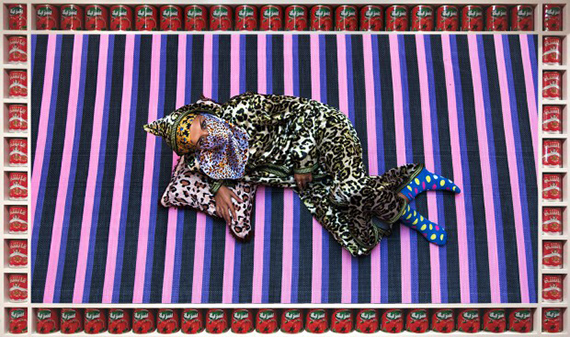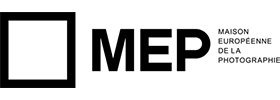
Hassan Hajjaj »
Maison marocaine de la photographie
Carte blanche à Hassan Hajjaj
Exhibition: 11 Sep – 17 Nov 2019

MEP - Maison Européenne de la Photographie
5/7 rue de Fourcy
75004 Paris
+33(0)1-44787500
Wed, Fri 11-20; Thu 11-22; Sat, Sun 10-20
The MEP is delighted to present Hassan Hajjaj’s first retrospective in France by giving him carte blanche to re-think all of our spaces. This major exhibition, reflecting a 30-year career, will feature all of Hajjaj’s most important photographic series as well as video works, sculptural installations and furniture. Even the educational spaces and new bookshop will be included in a real first for the MEP.
Born in 1961 in Larache, Morocco, Hassan Hajjaj has since lived and worked in both London and Morocco. Equally influenced by the London cultural and music scene, and his North African heritage, his practice reflects his ability to build bridges between the two cultures. This is most evident in the photographic series he began producing in the 1980s using colourful compositions to mix and blend the codes of contemporary fashion photography and Pop Art, bringing together different styles, references and icons. But beyond the sometimes deliberately kitsch look and playful humour that these images exude, they also support the artist’s message. For if Hassan Hajjaj plays with the imagery of fashion brands, it is not only a response to the question of what constitutes “today’s new Pop Art”; but it is also a way of expressing his position on today’s consumer society, especially with respect to the act of wearing the veil. By picturing young veiled women engaging with pop art and fashion that often ignore them, the artist seeks to explore questions of identity politics.
Furthermore, this combination of statements and Pop Art aesthetic, is also reflected in the frames for his photographs, which he makes in three dimensions using products mainly from Moroccan consumer culture (tin cans, tubes of harissa, and so on) and which become an integral part of the artwork. It is no accident that Rachid Taha gave Hassan Hajjaj the nickname Andy Wahloo*, an aphorism Hajjaj prints on his clothes, within his installations, and which is the name of the bar in Paris whose interior he designed.
* “I have nothing” in Arabic.
La MEP présente la première rétrospective en France de l’artiste anglo-marocain Hassan Hajjaj, en lui donnant carte blanche pour investir la totalité de ses espaces.
Le parcours retrace plusieurs années du travail de l’artiste à travers de nombreuses séries photographiques, mais également des installations, des vidéos, du mobilier et des éléments de décoration.
Il souligne les sujets principaux qui se lovent au cœur du travail d’Hassan Hajjaj : son intérêt pour l’univers de la mode et du vêtement ainsi que ses contradictions ; son point de vue critique et décomplexé sur la société de consommation ; les questions de tradition et d’identité avec notamment son regard singulier sur le port du voile, ou bien encore le quotidien des gens qu’il côtoie, amis ou inconnus croisés dans la rue au Maroc ou ailleurs.
Né en 1961 à Larache au Maroc et londonien depuis 1973, Hassan Hajjaj vit et travaille depuis lors entre les deux pays. Il est autant influencé par les scènes culturelles et musicales londoniennes, que par son héritage nord africain. Son univers artistique traduit ainsi sa capacité à créer des ponts entre ces deux cultures, en faisant se croiser les styles, les univers et les icônes.
À l’occasion de son exposition inscrite au programme de la Biennale des photographes du monde arabe Contemporain, Hassan Hajjaj offre lui-même carte blanche à deux artistes marocaines qu’il invite successivement à présenter leur travail au sein du Studio de la MEP : Zahrin Kahlo (11.09-13.10) et Lamia Naji (18.10-17.11).
Les espaces éducatifs au sous-sol de la MEP abritent par ailleurs un studio où les visiteurs peuvent se prendre en photo devant un mur de papier peint, cadre symbolique et habituel des prises de vues de Hassan Hajjaj. Enfin, la nouvelle librairie de la MEP présente une gamme de vêtements et objets décoratifs réalisés par l’artiste. Autodidacte, Hassan Hajjaj ne se fige dans aucun genre ni aucune forme.